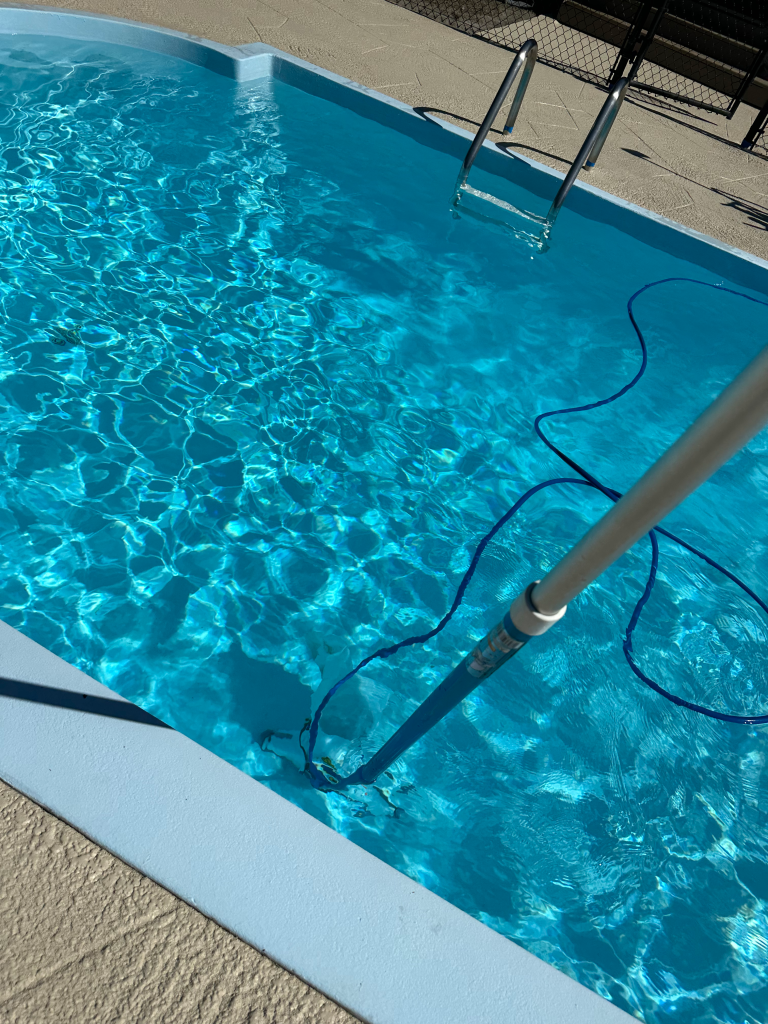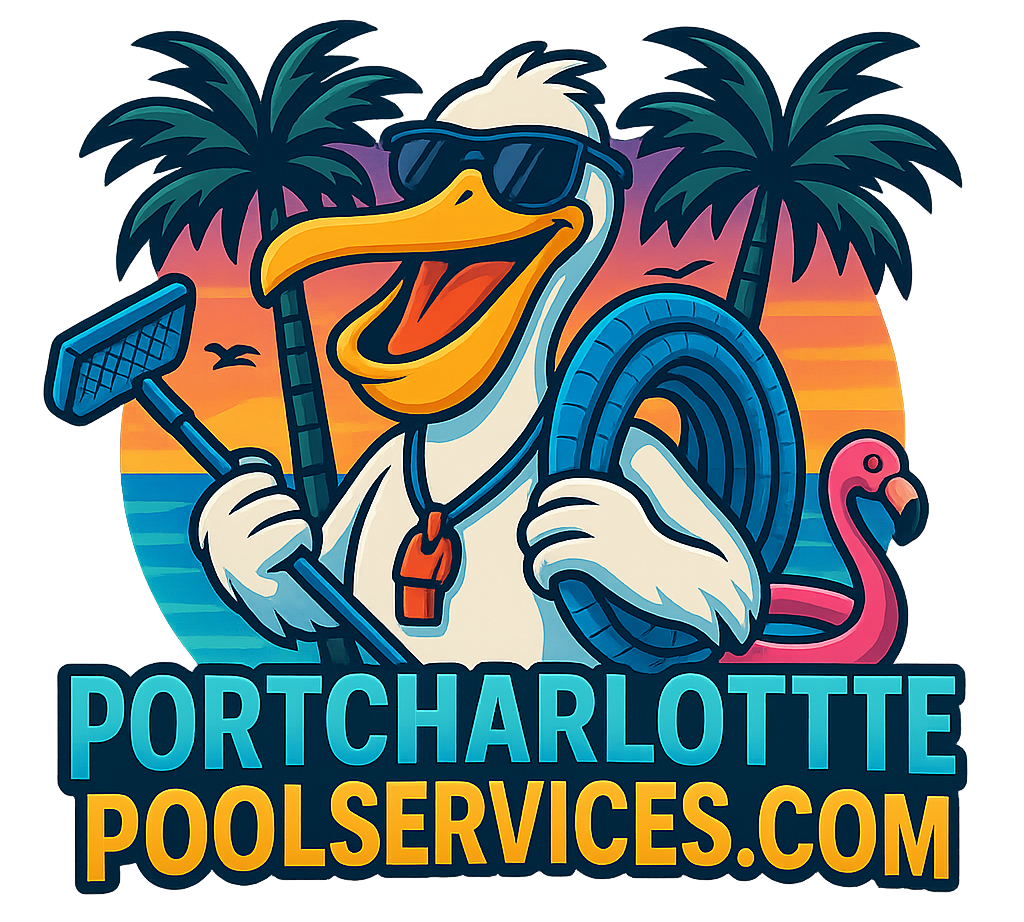Maintaining a pool in Port Charlotte goes beyond skimming leaves and vacuuming floors. One of the most critical aspects of pool care is chemical balancing. Proper chemical levels prevent algae growth, keep water safe for swimmers, protect equipment, and extend the life of your pool. Whether you own a saltwater or chlorine pool, following expert tips from local professionals ensures your pool remains sparkling and safe year-round.
Why Chemical Balancing is Important
Balanced pool chemicals:
- Prevent bacterial growth and algae
- Protect swimmers’ skin and eyes
- Maintain clear, sparkling water
- Protect pool surfaces and equipment from corrosion or scaling
In Port Charlotte’s humid and rainy climate, professional chemical monitoring is essential to avoid imbalances caused by rainfall, storms, or heavy pool usage.
Key Chemicals to Monitor
- Chlorine: Primary disinfectant; kills bacteria and algae.
- pH: Ideal range is 7.2–7.8; prevents corrosion and scaling.
- Alkalinity: Maintains pH stability; recommended range 80–120 ppm.
- Calcium Hardness: Protects pool surfaces; ideal 200–400 ppm.
- Cyanuric Acid: Stabilizes chlorine, especially in outdoor pools.
Regular testing—ideally weekly—is recommended. Home test kits help, but professional pool services in Port Charlotte provide precise chemical adjustments for optimal results.
Tips for Effective Chemical Balancing
- Test Water Frequently: Weekly or after heavy rainfall.
- Add Chemicals Gradually: Avoid sudden spikes that can damage equipment or surfaces.
- Shock Your Pool: Use shock treatments after storms or high use.
- Monitor Salt Levels: For saltwater pools, ensure proper generator function.
- Keep Records: Track chemical levels and adjustments for consistent maintenance.
Seasonal Considerations
- Summer: Increased sunlight and heat can accelerate chemical depletion; more frequent testing is essential.
- Fall: Leaves and debris introduce organic material affecting chlorine efficiency.
- Winter: Lower usage may allow for bi-weekly testing, but chemical balance must still be maintained.
- Storm Season: Test and adjust chemicals after hurricanes or heavy rains to prevent contamination.
FAQs
Q1: How often should I test my pool chemicals?
A1: Weekly testing is recommended; more often during heavy usage or storms.
Q2: Can I balance chemicals myself?
A2: Minor adjustments are possible, but professionals ensure accurate and safe levels.
Q3: What happens if chemicals are unbalanced?
A3: Algae growth, cloudy water, corrosion of equipment, and skin irritation can occur.
Q4: Are there differences in chemical care for saltwater vs chlorine pools?
A4: Saltwater pools need monitoring of generator cells and salt levels in addition to standard chemicals.
Q5: Can professional services reduce chemical costs?
A5: Yes, accurate monitoring prevents overuse and waste, saving money over time.
Conclusion
Proper chemical balancing is the backbone of pool maintenance in Port Charlotte. Regular testing, seasonal adjustments, and expert guidance ensure your pool remains safe, clean, and inviting year-round.
👉 Visit FloridaDetail.com for professional chemical balancing services.
👉 Partner with UnlimitedManiac.com for marketing and SEO expertise.
🔗 Helpful Resources:
- Local chemical tips: PortCharlottePoolServices.com
- Seasonal chemical guides: NorthPortPoolCompany.com
- Saltwater pool monitoring: PoolServiceInPortCharlotte.com
- General pool care: https://FloridaDetail.com

Engagement Questions
- How often do you test your pool chemicals?
- Do you struggle with maintaining proper pH or chlorine levels?
- Have you ever had chemical imbalance issues?

